Where were Iran’s allies?
The alignment of China, Russia and North Korea with Iran, which lacks both coordination and a willingness to share strategic risk, is more symbolic than substantive, observes Middle East Institute-NUS research associate Evangeline Cheng.
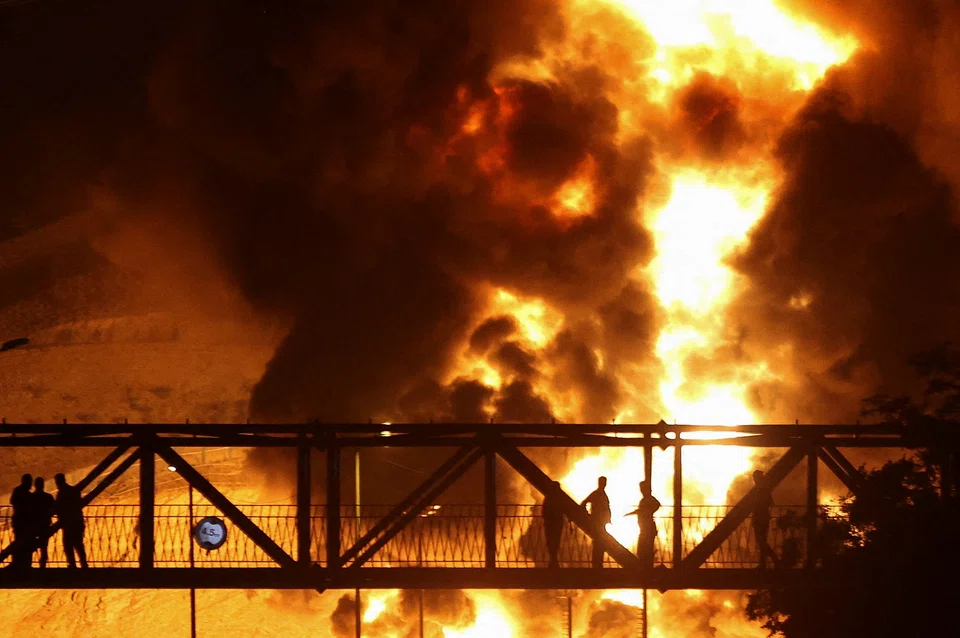
Amid the dizzying events of the past few weeks which left the Islamic Republic at its most vulnerable since its 1980-1988 war with Iraq — one question has received scant attention: where were Iran’s allies?
Despite years of cultivated ties, none of its partners in the so-called “axis of upheaval” — China, Russia or North Korea — offered tangible support. What has often been described as an anti-Western alignment has revealed itself not as a coherent bloc, but a loose constellation of diverging interests. While they frequently posture in concert, their responses to Israel’s strikes on Iranian nuclear and military sites revealed that their alignment, which lacks both coordination and a willingness to share strategic risk, is more symbolic than substantive.
Among the group, China adopted the most performative posture. While Beijing condemned Israel’s strikes as “unacceptable” and warned of “serious consequences”, its response remained largely rhetorical.
A fractured alignment: rhetoric without risk
China
For all their rhetorical solidarity with Tehran, both Beijing and Moscow adopted risk-averse postures in response to Israel’s strikes on Iran, revealing more about their own strategic constraints than any shared resolve to counter Western influence.
Among the group, China adopted the most performative posture. While Beijing condemned Israel’s strikes as “unacceptable” and warned of “serious consequences”, its response remained largely rhetorical. Foreign Minister Wang Yi affirmed Iran’s right to self-defence, and China’s ambassador to the United Nations urged Israel to halt its operations.
Beyond these diplomatic gestures, however, Beijing has offered little by way of substantive support. As with its stance on Russia’s war in Ukraine, China’s approach reflects a deliberate effort to signal alignment without incurring the costs or consequences of deeper involvement. This is consistent with its non-interventionist stance.
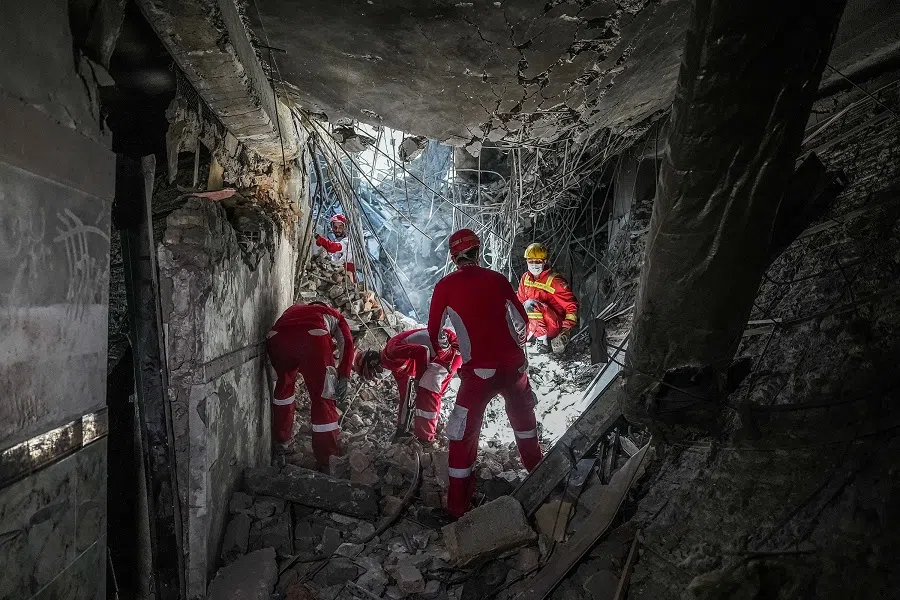
China’s overriding priority lies in safeguarding its economic interests, most notably the uninterrupted flow of Gulf energy and the stability of its Belt and Road Initiative (BRI) investments across the broader region. Keen to avoid entanglement, Beijing has adopted a low-cost posture towards Tehran: it continues to be the biggest buyer of Iranian crude, which now constitutes the overwhelming majority of Iran’s sanctioned oil exports, but stops short of offering strategic or military support. This energy relationship, while economically useful for both sides, is emblematic of an imbalanced partnership — one in which China reaps the benefits while shielding itself from geopolitical risk.
... the CSP [Comprehensive Strategic Partnership] has functioned less as a robust alliance than a transactional mechanism to secure discounted oil for Beijing — frequently at Tehran’s expense.
This policy reflects the deeper structural limitations of the Comprehensive Strategic Partnership (CSP) between China and Iran. Signed in 2021 as a 25-year framework reportedly worth up to US$400 billion, the CSP has delivered more in rhetoric than in results. While it spans the economic, political, security and cultural domains, its implementation has remained selective and symbolic. Infrastructure investment has been slow, military collaboration limited to occasional naval drills and most of the promised capital has yet to materialise. At its core, the CSP has functioned less as a robust alliance than a transactional mechanism to secure discounted oil for Beijing — frequently at Tehran’s expense.
China’s role in the brokering of the Saudi-Iran detente of 2023, often hailed as a diplomatic success, further highlights its risk-averse approach. It was not a sign of principled alignment with Iran, but a pragmatic effort to lower regional volatility and protect China’s broader interests, particularly in the Gulf, where its commercial ties with Riyadh and Abu Dhabi are several orders larger than those with Tehran.
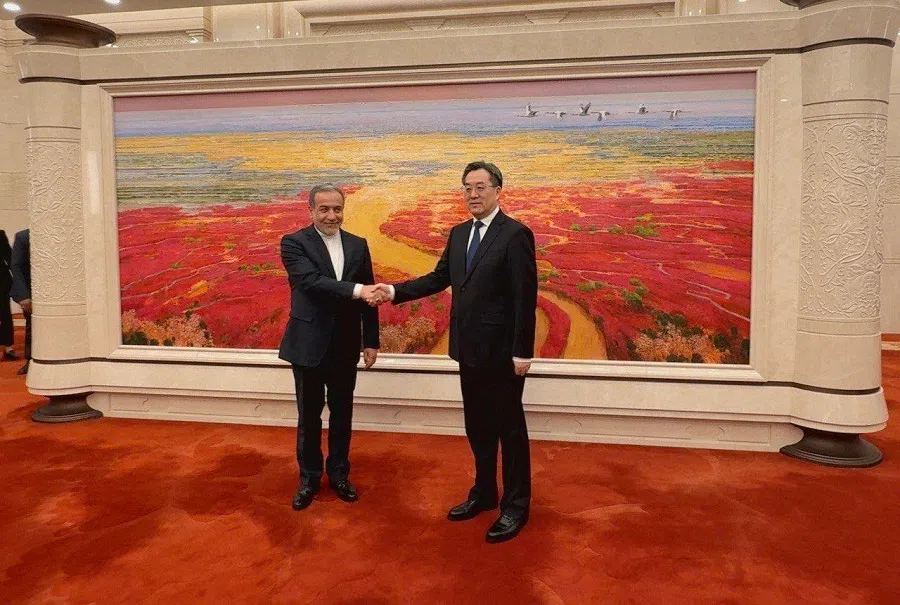
Strategic calculations are also at play. Beijing has little incentive to provoke a direct confrontation with the US by openly taking Iran’s side or providing it with any material support. Avoiding entanglement in conflicts has been a core policy for China, even when its interests appear threatened.
Beijing also benefits from Washington’s sustained entanglement in the Middle East. The use of US resources to support Israel and deter Iran diverts American attention from the Asia-Pacific, giving China space to pursue its own goals. While the US was bogged down in Iraq and Afghanistan, Beijing quietly advanced its BRI, thus increasing its influence.
When Iranian Foreign Minister Abbas Araghchi rushed to Moscow in the wake of the US strikes, he reportedly carried a letter from Supreme Leader Ali Khamenei seeking help. He left with handshakes and no material aid.
Russia and North Korea
Much like China, Russia has prioritised economic and diplomatic signalling over military commitment in its response to Israel’s strikes on Iran. The 2025 strategic cooperation treaty between both sides, modelled on China’s CSP, notably omits any mutual defence clause, signalling that the alignment is more performative than operational. While the Kremlin denounced the US strikes on Iranian nuclear facilities as “irresponsible” and a violation of international law, it has not offered any military support.
Russia’s position perhaps left Tehran feeling its isolation more keenly than China’s. Tehran played a critical role in sustaining Moscow during a low point in its invasion of Ukraine, supplying thousands of Shahed-136 drones and enabling the construction of a drone manufacturing facility in Tatarstan in 2023. For Iran, this level of strategic support was not merely transactional; it was intended to cement reciprocal ties.
When Iranian Foreign Minister Abbas Araghchi rushed to Moscow in the wake of the US strikes, he reportedly carried a letter from Supreme Leader Ali Khamenei seeking help. He left with handshakes and no material aid. Russian officials emphasised their “clear position” in condemning the strikes but offered no air defence systems, intelligence support or political guarantees.
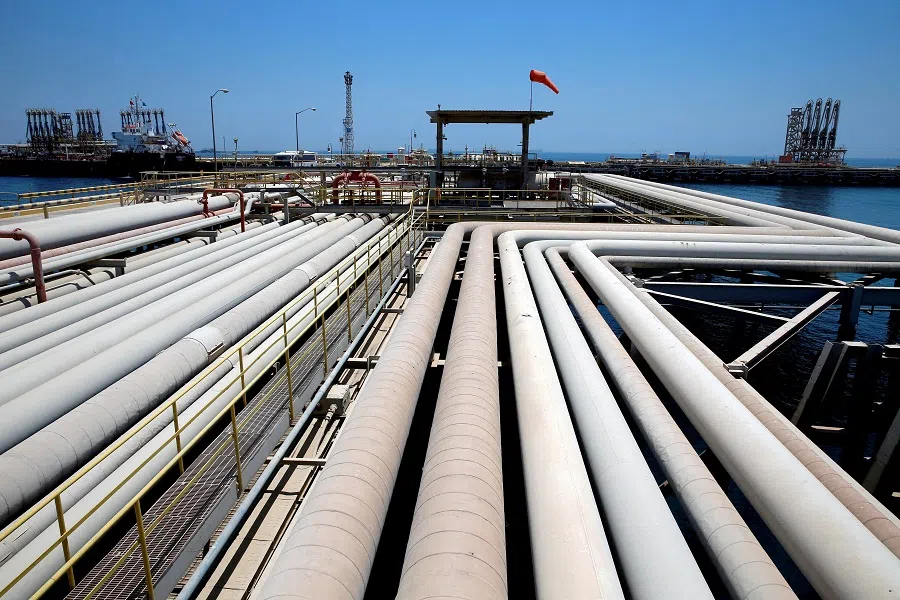
Part of Moscow’s reluctance to deepen support for Tehran lies in its increasingly vital relationships with the Gulf, particularly Saudi Arabia and the United Arab Emirates. These ties extend well beyond diplomatic pleasantries. Gulf coordination with Russia on oil production has been instrumental in sustaining Moscow’s economy, which has been heavily sanctioned by the West. Discreet financial and logistical channels have also helped cushion the blow of international pressure. For the Kremlin, these relationships represent critical economic lifelines, far outweighing what Iran, burdened by sanctions and limited market access, can realistically offer.
Concurrently, Russia has maintained functional ties with Israel. Russia’s coordination with Israel in Syria and its recent diplomatic engagements reveal a calculated balancing act amid the ongoing conflict. Despite publicly condemning Israeli strikes as violations of international law, Russia simultaneously secured Israeli Prime Minister Benjamin Netanyahu’s commitment to protect over 200 Russian personnel at the Bushehr nuclear facility, reflecting Moscow’s prioritisation of safeguarding its interests.
North Korea has provided no material support to Iran. Unlike China, it has no economic ballast to offer; unlike Russia, no historical stake in Iran’s nuclear infrastructure.
North Korea’s role has been even more peripheral. While Pyongyang condemned the Israeli strikes as “crimes against humanity” and labelled the US a “patron of state terrorism”, these remarks merely echo its longstanding anti-Western posture.
Beyond rhetorical denunciations, North Korea has provided no material support to Iran. Unlike China, it has no economic ballast to offer; unlike Russia, no historical stake in Iran’s nuclear infrastructure. Its response serves primarily to amplify the axis of upheaval’s ideological narrative rather than shape outcomes.
Gulf states’ wake-up call
The actions by the axis of upheaval stand in stark contrast to Washington’s clear demonstration of its enduring alliance with Israel and will no doubt not go unnoticed in the region. From the Gulf’s perspective, Beijing’s and Moscow’s postures reinforce scepticism about their willingness to bear real costs in the region. Russia’s limited follow-through after its failure to protect Bashar Al-Assad in Syria and its inaction despite formal ties with Tehran only deepen doubts over Moscow’s reliability. Gulf states recognise that neither China nor Russia are prepared to challenge the US-led security order substantively.
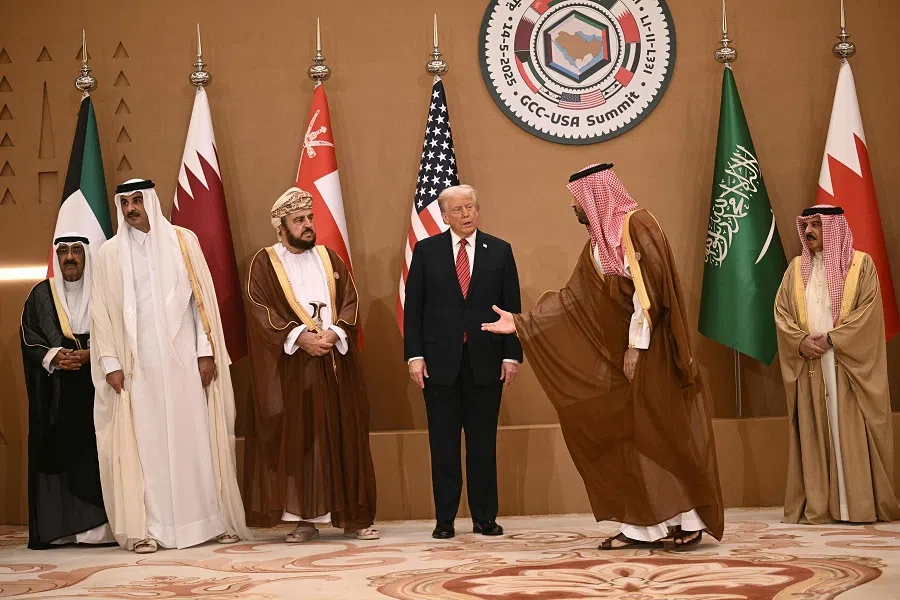
For Saudi Arabia, decades of Iranian-backed proxy conflicts, missile attacks and broader regional destabilisation have entrenched a profound wariness that recent Israeli and US strikes on Iranian nuclear facilities have only confirmed. This episode exposed Tehran’s persistent nuclear ambitions and undercut Gulf hopes that the 2023 detente would effectively curb Iranian assertiveness.
Riyadh’s view of the US as an indispensable security partner has sharpened, reinforcing Washington’s central role in Gulf security calculations.
Riyadh’s view of the US as an indispensable security partner has sharpened, reinforcing Washington’s central role in Gulf security calculations. While advancing its civilian nuclear programme under Vision 2030, Saudi Arabia seeks not only technical cooperation but also explicit and credible US security guarantees to counter Iran’s evolving threats. This reality highlights the limitations of China and Russia’s largely symbolic support, deepening Saudi reliance on Washington for strategic assurances and broader security cooperation.
The axis, disassembled
In an environment where Iran’s proxies have been severely weakened and its military infrastructure degraded, the strategic balance has clearly shifted in Israel’s favour. Tehran’s response to the Israeli airstrikes, characterised by constrained missile and drone attacks, reflects operational limitations. While the Houthis remain active, other Iranian proxies have been largely neutralised, particularly Hezbollah, whose operational capabilities have been significantly degraded by Israeli operations, rendering Tehran’s erstwhile most formidable regional partner almost toothless.
Iran’s isolation amid this conflict may force Tehran to recalibrate its expectations — not only regarding its Western adversaries but also about the limitations of its so-called allies. The recent joint call between President Vladimir Putin and President Xi Jinping represents yet another instance of rhetoric devoid of tangible support, prioritising instead the preservation of relationships with the very powers Iran considers adversaries: Israel, the US and the Gulf states.





